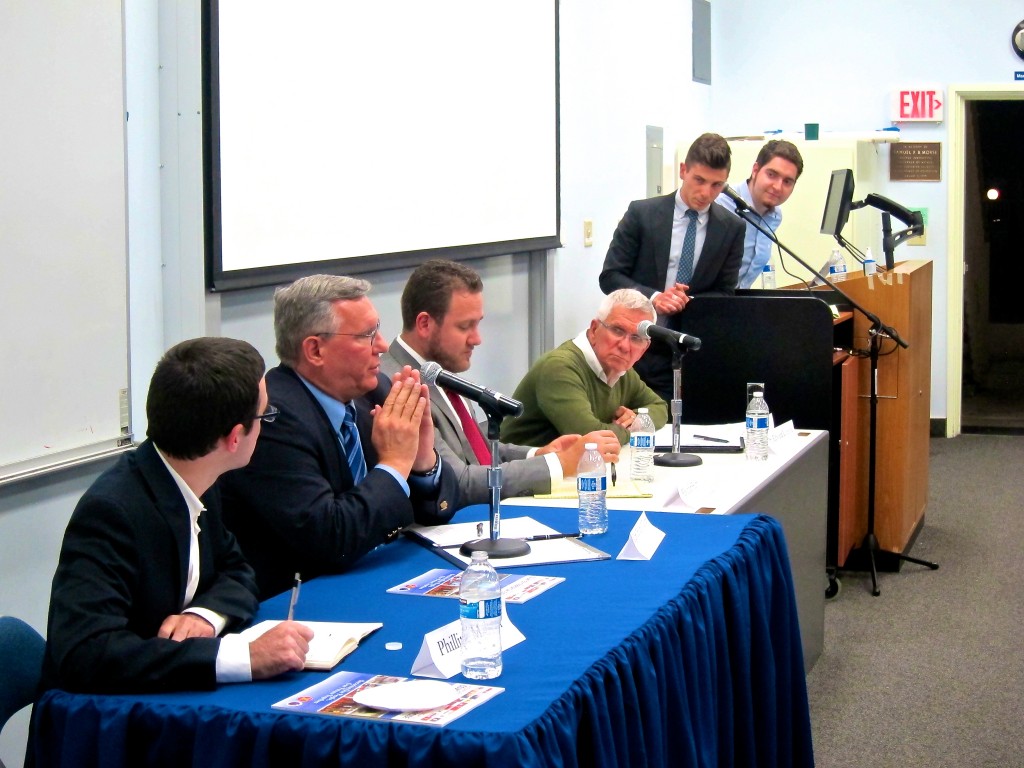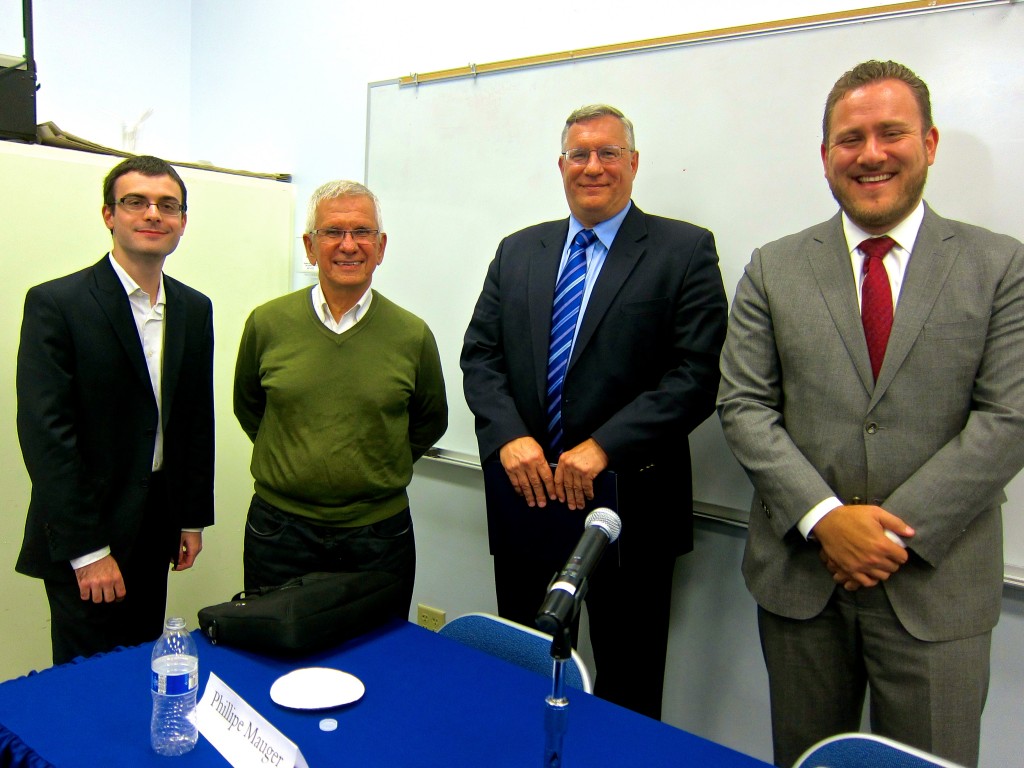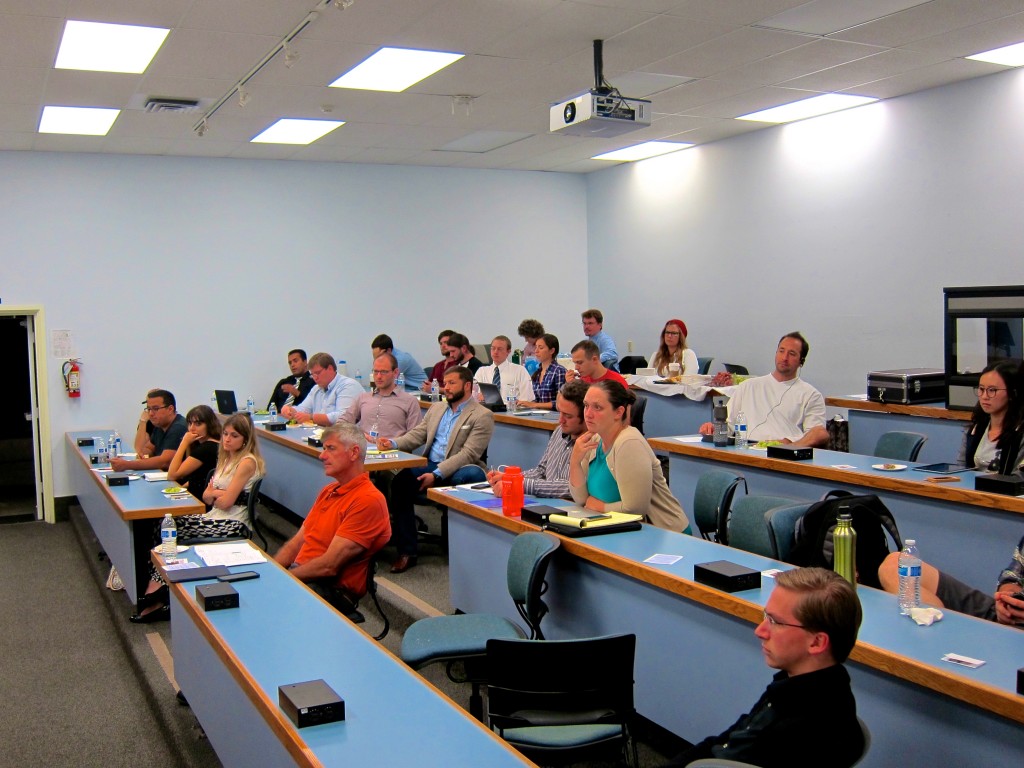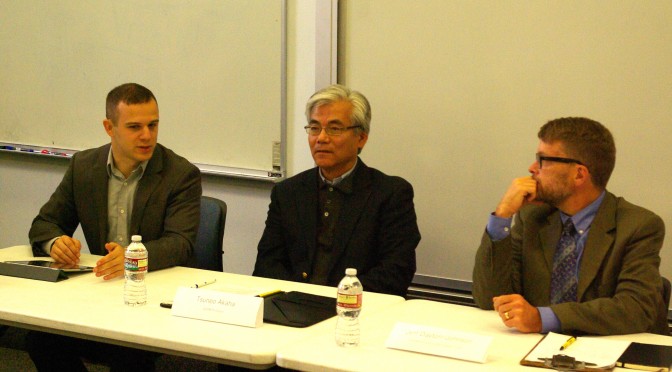I don’t really expect much from Italian trains. They are a way to get from point A to point B in a country that otherwise has difficulty connecting towns and villages, but that’s about it. The seats aren’t that great and you’d consider yourself lucky if your regional train wasn’t covered in graffiti (albeit very well made graffiti). That is why I was surprised when, on my way from Fiumicino Airport to a dinner appointment aboard one of these regional trains, I found myself talking to a complete stranger. For boring legal reasons, his identity will be known as C.
It’s not in my nature to start conversations with strangers on public transport. The first and last thing I do when I get on a bus, plane or train is stick my headphones in and shut off from the rest of the world. However, having spent nearly four weeks away from the states, the American passport that C clutched in his hand as we were watching our train approach was a sight for sore eyes. “Hello’s” and pleasantries exchanged, we boarded the train and snatched a four-person booth for ourselves and our luggage (my apologies to the Italian rail system which explicitly forbids this from happening). His relaxed American accent was as refreshing as it was, well, American. He told me he lived in Rome, that he was going to college there. My assumption at this point was that he was some sort of ex-pat with an Italian last name, misspelled by an Ellis Island worker in the early 20th century, who came back to the motherland to study and to discover himself. At least, that was the case until I told him what I studied; International Relations.
“Oh, that’s … interesting”. It didn’t take a genius to realize that the mood took a very serious yet odd swing. I’ve been known to offend people here and there, but very rarely does it happen as I’m still introducing myself. I asked what brought about the change in tone and he very directly asked me what I thought about “the Gaza thing”. I stuttered. Where to even begin? Why would he ask me this outright? Why would he even be interested? The best I could come up with was “well, it’s a very complicated issue”. As I reflected on how all my past professors probably felt a shiver go up and down their spines as I spit out such a weak answer, he began to reveal his real identity to me.
C had been an Israeli soldier for four years, working in combat zones for the majority of that time. He went on to tell me what unit he operated in and what missions he had undertaken. It took less than 60 seconds for him to whip out his cell phone and show me a picture of him standing on a dirt mound at night, holding a marksman rifle with an infrared sight fitted to its top rail. Neither of us were able to understand exactly what rifle it actually was. But the conversation quickly reverted back to the original inquiry, what I thought of “the Gaza thing”. This time around I was prepared, and blurted out “well, we want to be able to have it so that Israeli children and Palestinian children grow up without any fear”.
“Ah, but that’s not reality is it?”, C responded with a smirk on his face. “Rightly so”, I responded, but as I went on to explain, people working in the field of International Relations have to keep some sense of idealism in order to guide what they do in the “real world”. He then asked me if I thought it was a good thing that Israel began its ground campaign a few days before our encounter. I proceeded to walk that very fine tightrope of explaining both sides of the issue strategically: “It’s advantageous to do so because of X, but Israel is probably very wary of Y”.
As I responded, C was swiping across his phone, looking at his messages. “That unit that got 13 KIA’s today, yea, my friends are in that unit. I’ve tried texting them but they’re not responding”. An Israeli ground unit had been ambushed that day by Hamas fighters in which a rumored 15 soldiers had been killed or kidnapped by Hamas. “I’m sure they’ll respond soon”, was the only thing I could possibly use as a reply, “they’re probably busy with something”. It later turned out, long after we parted ways, that of the 13 confirmed KIA’s, two were American citizens. We didn’t know that yet, and so kept discussing the conflict. Jumping back and forth between rules of engagement, human shields, hospitals, schools, excessive force, popular sentiment, right to defense, national sovereignty and AIPAC, something became painfully clear to me. This was not just a conflict of states, it is a conflict of peoples.
C was not going to budge on any of his positions. No matter how reasonable I thought my points were, no concessions were going to be made by this particular person. C had not struck me as an unreasonable person when we were discussing the merits of studying abroad or when we were talking about football, but talking about the crisis that hits close to home was simply non-negotiable.
I can’t imagine that being any different on the other side of things. If you looked at my Facebook newsfeed since the conflict started, you’d see that all my friends with an Arab background would consistently post pro-Gazan news, information, statistics and outcry. Those are not messages of peacebuilding or understanding, they were messages of engaging in the conflict. I would now like to take time to ask the reader to understand that these words are not meant to make people sound less reasonable than they actually are. These are good, reasonable people, people who want to join the ranks of those we would consider to be “educated”; there is no lack of awareness or tact among these people, yet both C and pro-Gazan friends are ready to defend their respective sides regardless of what or whom is in front of them.
C’s unwillingness to concede the criticism of human rights abuse by the IDF is born of the same mentality that allows for Hamas to remain a viable political option in Gaza even though their presence as a major political player has often sparked violence in the region, including this particular conflict. Although deliberations and agreements will be made on the state level, it is important that we as policy makers do not forget the real actors involved here; the public in Israel, Gaza and the West Bank. They are the fuel of this conflict and conversely it’s solution.
Perhaps getting Israelis and Palestinians to drop their anger simultaneously pertains to C’s notion of things that do not belong in the real world, but at the same time that is what will quell this conflict in a more permanent sense. As such, those of us who say that we want a secure world should pay more attention on what it means for that world to feel secure, not merely enacting edicts and hoping for the best. The stories here are what will make the difference for peace and more importantly understanding in the future, and it is our responsibility to make sure that happens.





